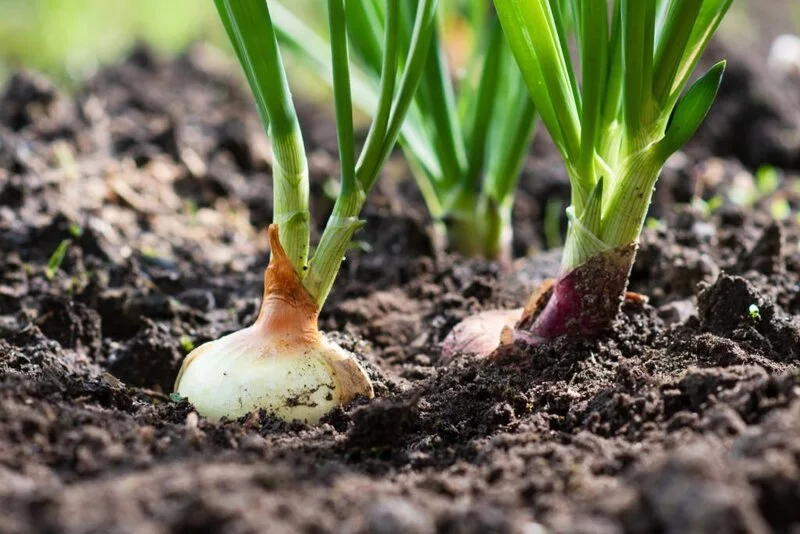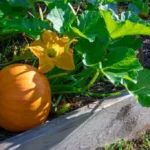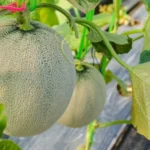Are you a fan of onions? Well, guess what, you might not be the only one who finds these pungent bulbs interesting. In the animal kingdom, some creatures have a knack for nibbling on onion plants. But what animals exactly? Let’s set out on an exciting discovery journey!
- Sweet and mild flavor
- Great for cooking or using raw
- Pefect served fresh or cooked in your favorite recipe
Recognizing Onion Plants: Features and Characteristics
But before we dive into the world of animals and onions, let’s first understand what an onion plant looks like. Onions are part of the Allium family, alongside garlic and leeks. They’re known for their distinct smell, which is often strong and somewhat spicy.
Onion plants are easy to recognize. They have hollow, tube-shaped leaves that form a bluish-green fan shape above the ground. Below the surface, they have a bulb, which is the onion we eat. This bulb is often white, yellow, or red. They also grow flowers on tall stems, which form a spherical cluster of tiny blossoms that range from white to purple.
Now that we know what an onion plant looks like, let’s figure out which animals might be sharing our love for these flavorful plants!
Animals That Eat Onions: A Broad Overview
While onions might be a staple in our kitchen, it’s a different story in the wild. Not every animal is a fan of these pungent plants. Onions contain sulfur compounds that can be toxic to some animals, and their strong smell often acts as a natural deterrent.
However, some animals aren’t bothered by the scent or taste and will eat onions if they come across them. These onion-eaters can be a diverse group, including some insects, birds, and mammals. It’s an interesting mix, right? Now let’s take a closer look at some of the specific members of this ‘onion-loving’ club!
Specific Animals That Consume Onions
First on our list are some types of insects. Onion flies, thrips, and onion maggots are known to munch on onions, often causing damage to the plants.
In the bird world, it’s the crows and starlings that show a liking for onions. These intelligent birds may peck at the bulbs if they’re not buried deep enough.
Surprisingly, some larger animals aren’t put off by the onion’s pungent smell. Animals like voles and groundhogs have been known to nibble on onions when other food sources are scarce.
Now, remember, while these animals can eat onions, it doesn’t mean that they should. For many animals, especially pets, onions can be harmful if consumed in large quantities. But that’s a story for another day! For now, let’s continue our exploration of animals and onions.
Animals That Avoid Onions
While some critters have a palate for onions, many others turn their noses up at these strong-smelling plants. It’s actually quite a list! Animals like deer, rabbits, and many types of rodents tend to steer clear of onions. The sulfur compounds that give onions their distinctive smell seem to act as a natural repellent.
Domesticated animals such as dogs and cats also tend to avoid onions. Onions are toxic to these animals and can cause serious health problems if ingested, which seems to have led to an innate avoidance of them.
And let’s not forget about the bugs! Many types of insects are also put off by the smell of onions, making these plants a useful tool in natural pest management. Isn’t nature clever?
Impacts of Animals Eating Onions
So, what happens when animals do eat onions? For those that have adapted to enjoy them, it can be just another part of their diet. However, for those that aren’t used to it, onions can cause digestive problems due to the sulfur compounds they contain.
From a gardener’s perspective, animals eating onions can be a problem. This can lead to a damaged or depleted onion crop. Onion maggots, in particular, can wreak havoc on onion plants, burrowing into bulbs and causing them to rot.
It’s a delicate balance in the natural world, and onions certainly have their place in it. Whether they’re being enjoyed as a snack or used as a natural deterrent, it’s clear that onions have an impact far beyond our dinner plates!
Preventative Measures: Protecting Your Onions From Animals
Now that we know that some animals may find onions a treat, it’s time to talk about how we can protect our onion patches from hungry visitors. Fencing is a traditional method that works well. Installing a sturdy fence around your garden can keep larger animals like deer and rabbits at bay.
Insect netting can help prevent damage from pests like onion maggots. These nets are light and easy to install over your onion plants. They allow sun and rain through, but keep the bugs out!
Using natural repellents like garlic spray or other homemade concoctions can deter some animals. Be sure to research and test any repellents to ensure they are safe for your other plants and won’t harm any non-target wildlife.
Frequently Asked Questions About Animals and Onion Consumption
Here we delve into some of the most commonly asked questions about animals and onion consumption. We’ll cover queries like: “Are onions harmful to dogs?” (spoiler: yes!), “Can birds eat onions?” and “Do pests dislike onions?” Your curiosity will be satisfied, and your knowledge about onions and animals expanded!
Conclusion
Whether you’re a gardener protecting your crops, or just a nature enthusiast wanting to understand more about wildlife, it’s fascinating to explore the relationship between animals and onions. It turns out that onions not only add flavor to our meals but also play a unique role in the animal kingdom. From acting as a deterrent to some creatures, to providing a feast for others, these humble bulbs truly have a far-reaching impact!






